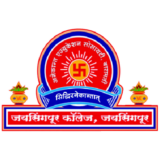History of Department
The department under the faculty of Commerce is established in 1964 with the establishment of the college itself. I took the charge as head of the department in March 2007. The department introduced M. Com. Course from the academic year 2009-10 with one batch of 50 students. Additional division for B. Com. I is sanctioned by the university from the year 2017-18 and additional batch for M. Com. Course is sanctioned from the academic year 2018-19. The strength of the students shows increasing trend continuously especially of female students. The strength of female students was negligible before 10 years. Our sincere and continuous efforts for upgradation of quality of teaching learning are giving positive results. The total number of students increased continuously during the period under consideration. The average strength of female students of the last five years is 42% even a separate women college is in the same city and near to our college.
Strength
- Excellent and dedicated faculty
- Learned visiting faculty
- The department has P.G. Centre
- One faculty is Vice Principal of the College
- One faculty is Research Guide for M. Phil. and Ph.D.
- One faculty is author in the subject of Accountancy.
- One faculty is pursuing for Ph. D.
- One Room is equipped with computer, internet and L.C.D.
- Computer Laboratory
- Departmental Library
- Able to organize Workshops and Seminars for students
- Can organize Industry visits, Bank Visits etc. for students
- Memorandum of Understanding with Business Undertakings.
- Good number of students enrolled for B.Com and M.Com.
Goals
- To consolidate, strengthen and update the existing programmes.
- To expand and diversify to cover the frontier areas by introducing newly certain innovative academic programmes.
- To foster research in regional studies that too of interdisciplinary nature.
- To keep regular interaction with business and industry with the help of establishment of chairs and entering into MOU’s.
- To introduce professional courses, short-term, long-term and need based.
- To undertake extension and consultancy activities.
- To adopt latest educational technology such as use of computer, internet etc.
- To adopt appropriate methods of assessment and evaluation of performance of learners.

